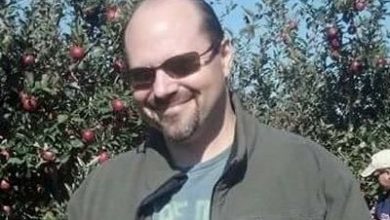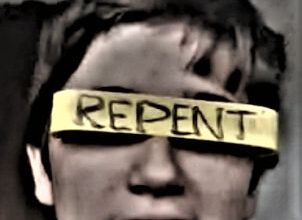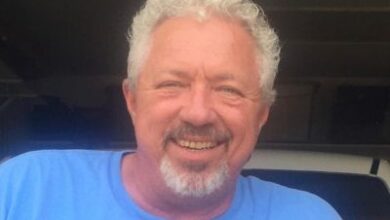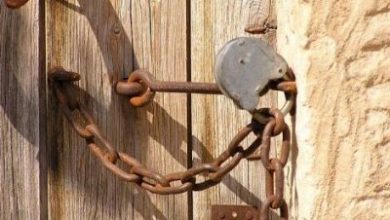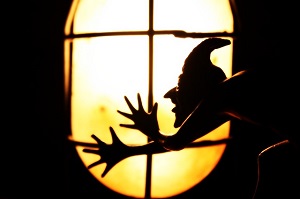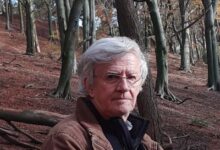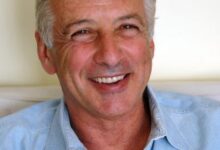Flash Fiction: Courage by Henry Hatchet
The year was 2039; the insurgency had begun.
The acrid stench of diesel fuel filled the still afternoon air, wafting from the freshly primed injectors of the growling-green engines. The huge pumps were straining furiously, turbo-chargers screaming. There were five of them, and now the tranquil, old river flowed unnaturally backwards, towards their massive intakes.
The main channel, leading away from the pumps, was wide enough to accommodate an airliner and deep enough to swallow ten broken cars, stacked on top of each other. Dark clouds gathered over the giant ditch where it disappeared around a bend, flowing urgently towards the vast export-storage lakes.
Lightning crackled—flashing brightly. There was a storm brewing. A lethal, sinister storm. Far more dangerous than the one thundering over the man-made channel.
Captain Jun Canshen, of the People’s Liberation Army of China, banked the hurtling Changhe Z-10-K attack helicopter towards the east, putting the orange setting-sun behind him. His gloved fingers hit the Electronic Warfare System switch and felt a reduction in vibration and noise. The 95KT foamed-composite rotor blades feathered, to the exact angles required, cutting the rotor-noise by half. Now, his quiet helicopter was invisible to radar and infra-red detection systems. A ghost—an undetectable, deadly, menacing ghost.
The Gunner Override switch made a sharp click as he flicked it to ‘ON’. There was no way he was going to allow his gunner to take these shots: this was personal. He had assured his commander that he could destroy the last two Australian tanks, without utilising the entire squadron, and now it was time to make good on that promise. The first AGM-214 Hellfire Missile beeped at him rhythmically. He could see it flashing and glowing orange in his heads-up display . . . no missile lock yet.
He couldn’t recall, if it was the exporting of fresh water to China, or the appointment of the new Chinese non-elected Prime Minister that started the rebellion. He didn’t really care. The Australians were just like the Americans. Fifty years ago, they started selling their farms, mines, water rights, utilities, ports, airports, and just about everything else, to China. Now, they wanted it all back—for free. And of course, China, the mightiest superpower the world had ever seen, had a right to protect her assets and her interests.
He only caught a fleeting glimpse of the youths, with the rocket-propelled-grenade launcher, but it was enough. He pulled back on the stick and his bird climbed vertically, bleeding off airspeed fast. He spun the helicopter around; the youth angled his head and took aim. The luminous cross-hairs, of Canshen’s helmet mounted display, settled on the boy’s chest and he pressed the trigger button. A short burst was enough. The 25mm chain-gun bullets almost cut the kid in half and he fell to the ground, dropping the launcher.
The girl with the youth was unharmed, and she dropped to her knees beside him. Canshen was about to turn and continue his interrupted mission, when he saw her pick up the fallen boy’s assault rifle. She would have been fourteen at the most, the same age as his own daughter. His thumb hovered above the fire button, as he watched her shoulder and aim the rifle that was too large for her.
What kind of a war is this? he thought. Are child soldiers all that’s left of the militia?
She was now aiming the weapon at him, her hands shaky, wobbling all over the place: unbelievable. Bullets poured from her gun, most of them peppering the 38mm armoured glass, in front of his face, harmlessly. He smiled as he watched her struggle to reload the empty firearm, shoulders and chest heaving.
This is true courage, he thought.
She must have known that her next breath could be her last, yet she fought on regardless, with all she had. She finally managed to get the fresh magazine inserted and with a deep breath, she emptied it at his helicopter’s rotor housing. Of course, this was also armoured and deflected the stream of bullets without damage.
Alarms sounded urgently in his ears and filled the cockpit. Red letters flashed in front of his eyes: INCOMING MISSILES. He accelerated instantly, banking left and right. The physical countermeasures deployed behind him automatically, exploding like fireworks. He turned sharply to the left, directing his engine’s heat-plume away from the incoming missiles.
He was furious with himself. The shooting had attracted the attention of the two tanks; he had allowed himself to become the hunted. The missiles hit the countermeasures. Still, he felt the searing heat through his windshield, and the whole helicopter shuddered and spun on its axis. He fought to regain control, gritting his teeth against the bone crunching vibrations of the machine. Heel and toe, a twist of the throttle and repeated flicks of his wrists. He let his breath out with a rush as the machine settled.
He wheeled the helicopter around to face his adversaries and he saw the girl again. This time she was on one knee, and she was aiming the rocket-propelled-grenade at him.
He heard the dull thuds behind his head. His gunner was banging his frustrated fists at the armoured glass panel that separated them.
“Shoot!” Yelled the gunner into his headset. “Shoot the bitch!”
He willed his thumb to press the trigger, but his thumb would not respond. The range was close enough for him to see the shiny tear tracks on her grubby face; the torn rags she wore as clothes fluttered in the gentle breeze. If she fired, she would die as well.
White smoke belched from the back of the launcher and the recoil of the weapon knocked her flat on her back. Just for an instant he saw a blinding, white flash of light and felt a scorching heat, and he knew that this battle would be finished in hell.
About the Author:
Henry Hatchet grew up in Brisbane and as a teenager, his quest for work led him to the Country. He fell in love with the Australian Outback and although his work led him overseas for a time, he never worked in a city again. He experienced the trials and tribulations of rural life, first hand: the droughts, the floods, the fires, the accidents, the joys of happiness, and love. He now resides on his property in Queensland and wouldn’t have it any other way.
Other work by Henry Hatchet published on Flashes:
Dark and Dreaming

